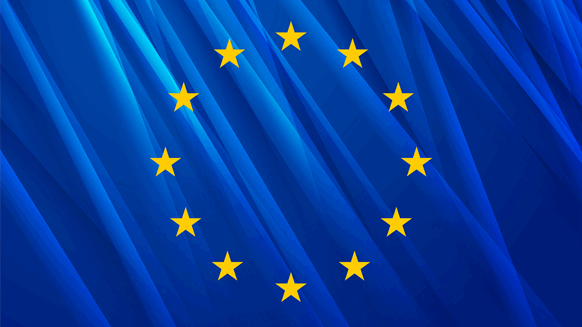The European Union is aiming for a way to allow member states the option to effectively ban Russian shipments of liquefied natural gas without implementing new energy sanctions.
The bloc’s energy ministers are poised to approve a proposal that would give member governments the ability to temporarily prevent Russian exporters from reserving infrastructure capacity needed for shipments in advance, according to a document seen by Bloomberg News.
While individual governments would still need consultations, including with other EU countries and the European Commission, to use the mechanism, the tool could continue to reduce the flow of energy products from Russia.
The approval is expected to come as part of a wider political meeting of ministers on Tuesday in Brussels. The proposed regulation would still need the approval of the European Parliament, which has offered its own solutions to reduce Russian gas imports. Finland, Estonia, Latvia, Lithuania and Poland are leading the push for new import blocking powers for member states.
The move is part of the EU’s push to distance itself from Russian gas following President Vladimir Putin’s invasion of Ukraine. While natural gas pipeline flows have fallen to record lows, LNG shipments from Moscow have surged.
EU energy chief Kadri Simson called earlier this month for Russian LNG shipments to be halted, saying companies should not renew long-term contracts after current ones end. Spain, the EU’s biggest buyer of Russian LNG so far this year, asked companies not to sign up for new purchases from Russia.
At their meeting, energy ministers will also approve a regulation that will require new cars to have zero emissions after 2035, marking the effective end of the era of combustion cars. A key pillar of the ambitious Green Deal, the measure is poised to be approved following an agreement between the commission and Germany on provisions that would allow room for cars that run only on so-called e-fuels after 2035.
Nuclear concentration
The meeting’s agenda also includes the ministers’ first discussion on a redesign of the region’s electricity markets and a proposal by the commission to extend a voluntary 15% gas demand reduction target for another year to help ease pressure on supplies next winter. It is currently scheduled to expire at the end of the month.
Talks are expected to be particularly intense on the issue of nuclear power amid a push by France and allied countries to receive credit for the technology under the bloc’s plans to boost renewables to 45% of the energy mix in the end. of the decade The Swedish presidency is preparing for “non-fossil energy sources” to help contribute to those goals ahead of negotiations with parliament on Wednesday, according to the latest draft proposal seen by Bloomberg.
France, along with other members of the so-called nuclear alliance, will also call for more investment in small modular reactors, an emerging nuclear technology that allows smaller facilities than those currently in operation.
“Nuclear power will contribute to a decarbonised energy mix, advancing ambitious climate goals and the important goal of maintaining the competitiveness of EU industry,” according to a draft letter seen by Bloomberg. The EU “must take urgent action to avoid falling behind in reaping the benefits of the development, commercialization and deployment of SMR technology.”
Photo credit – iStock.com/saicle


